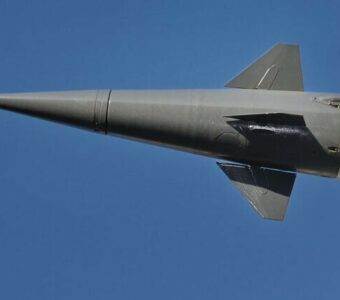US offers G7 new plan to confiscate Russian assets worth $300 billion − FT

Photo: slovoidilo.ua
Ukraine's partners are rushing to finalize a plan for the confiscation of $300 billion in frozen Russian assets.
The United States has proposed to the working groups of the "Group of Seven" (G7) to explore ways to achieve this, Rubryka reports, citing the Financial Times.
No decisions have been made at this time, and discussions on this matter are ongoing in European capitals. However, the publication highlights that the accelerated work on confiscating Russian assets underscores Ukraine's growing importance to the West.
This topic was discussed this month by both G7 finance ministers and their deputies.
The United States, with the support of the United Kingdom, Japan, and Canada, has proposed continuing preparations so that options are ready for a potential meeting of G7 leaders around February 24.
Three working groups proposed by Washington will examine legal issues related to confiscation:
- Methods of implementing such a policy and mitigating risks.
- Options for directing support to Ukraine.
Germany, France, Italy, and the EU have expressed some reservations, stating the need to carefully assess the legality of Moscow's asset confiscation before making decisions. Several European ministers have also emphasized the importance of maintaining a high level of secrecy in this work.
Various options are being considered in Western capitals, ranging from direct confiscation and expenditure of assets from the Russian central bank to generating income from frozen assets or using them as collateral to obtain loans.
The EU is currently not seizing Russian assets but is exploring ways to extract profits obtained by financial institutions, such as Euroclear, where sovereign assets worth €191 billion are stored.
Washington has not publicly supported the arrest of Russian assets so far. However, this year, the United States privately circulated a discussion document within the G7, suggesting that the arrest of Moscow's frozen assets would be legal as a "countermeasure compelling Russia to cease aggression."
Europe, where most of the assets are located, is much more cautious. It fears potential consequences for financial stability and retaliatory actions by Russia.
Italy, set to assume the G7 presidency in 2024, is one of those concerned about potential repercussions for its companies operating in Russia, as Moscow has already threatened.
Russia has also warned that it will sever diplomatic relations with the United States in response to any asset confiscation.
The EU, the UK, and France have also emphasized that these funds will not be easily accessible and sufficient to cover Ukraine's reconstruction needs. They stress that asset seizure should not occur at the expense of providing financial support to Kyiv in 2024.
Over the past two years, the G7 has managed to overcome differences among its members about economic measures against Russia, including the initial broad package of sanctions and setting an upper limit on the price of Russian oil.
Earlier reports indicated that the administration of US President Joe Biden has intensified efforts to confiscate around $300 billion of sovereign Russian assets frozen in Western countries.
On December 12, the European Commission approved a legislative proposal to use income from frozen Russian assets for Ukraine's recovery, which was accepted by the European Council on December 14.

























































